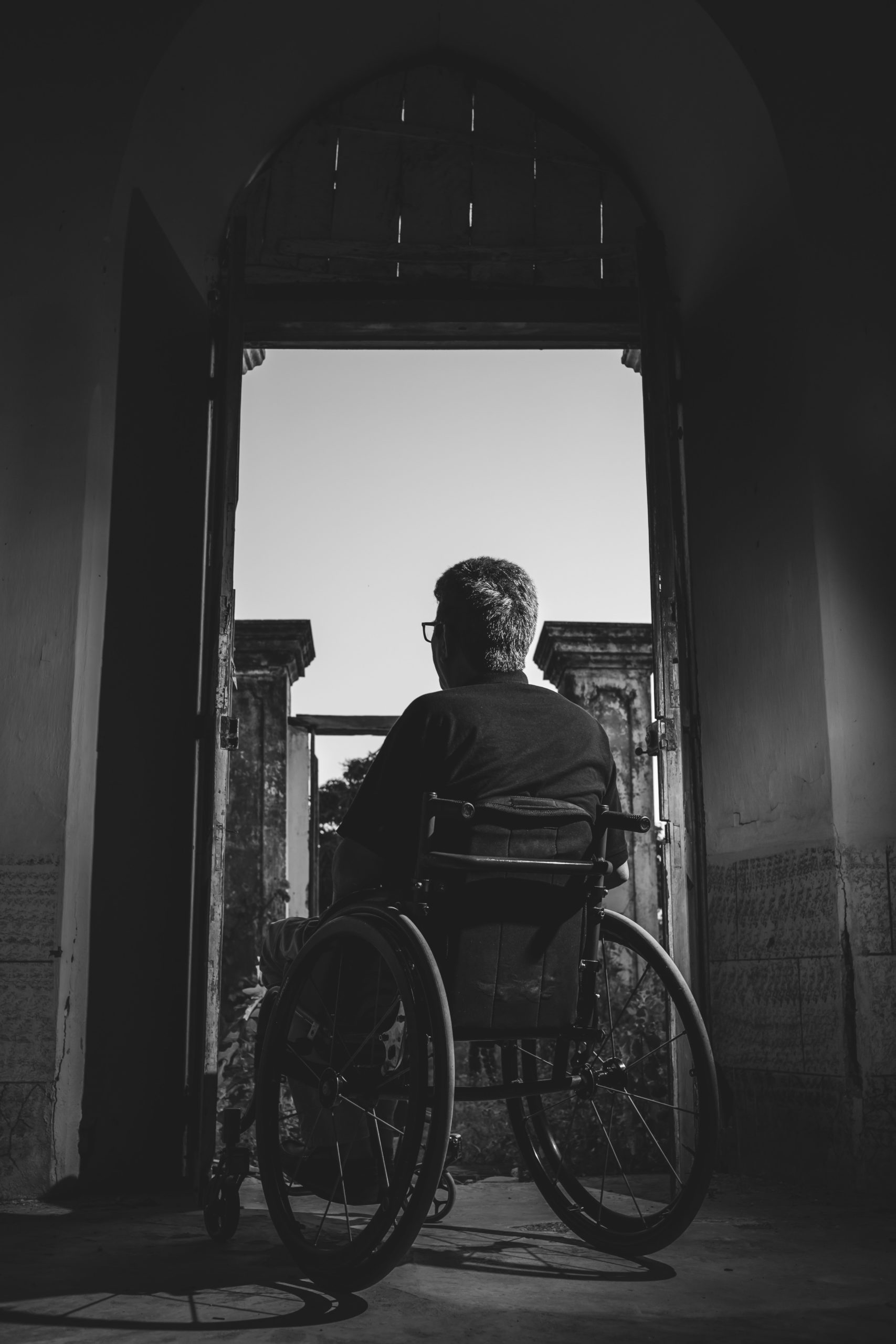Blog by Aneesh Basheer
Much of the response to the COVID 19 pandemic from governments, health authorities and volunteer organizations has neglected people with disabilities. While this is generally true during concerted response to any sort of disasters, the current COVID 19 situation offers particular insights into the intrinsic ableism of our society while also highlighting ways to mitigate it in the future.

What are the specific issues that relate to people with disabilities (PWD) in the context of COVID 19 pandemic? Access to the various mechanisms of social and preventive medical care is probably the most important among them. PWD are less likely to have access to information regarding the disease itself, the transmission dynamics, and the risks. Some people living with mental disabilities may be unable to properly use this information even when they have access to it. Consequently, they are more likely to get infected, less likely to follow preventive strategies, and therefore more likely to become a great risk to the society at large. Some PWD who have good access to information may still be prevented from taking action by the nature of their physical disability; for example, they may not be able to cough into their elbow or cover their mouth while coughing or sneezing, even when they know that this is the best way to prevent spread of infection. Some PWD may not be able to practice effective hand hygiene. Yet another accessibility issue is the difficulty in seeking health care—both curative and preventive—at the appropriate time. In general, the logistical difficulties involved in seeking and getting care may prevent many PWD from reaching a facility once they develop symptoms.
PWD quite often are dependent on another individual—spouse, children, close relatives, distant family, friends, unrelated caretakers and so on. The care they receive during a pandemic such as the COVID 19 Promotional Cloth Face Masks one largely depends on the strength of relationship between the PWD and the assisting individual. [1,2] The large numbers of PWD in care facilities managed by both government and non-government voluntary agencies are at potential risk of being “less cared for” during these times, when the personal protection of the care givers takes precedence over theirs.
Accessibility could involve things as trivial as not being able to make an emergency call to the air ambulance company for timely intervention. With these transportation and aviation issues, an aviation attorney might be helpful in addressing these situations. PWD might be dependent on someone else to take their medications on time. They may also have limited access to authentic information, social media connectivity, and technological aids freely available to others.
Increasing demand for isolation facilities on account of the exponential rise in numbers of COVID 19 suspects and cases means the conversion of hitherto usual health care areas such as general wards and day care centers into isolation wards. Many of these makeshift facilities might not be friendly to PWD, as they may lack suitable railings, ramps or toilets. The restrictions of movement during the COVID 19 pandemic make it even more difficult to arrange alternative isolation areas solely for PWD.
At the same time, the COVID 19 threat has also paved the way for interventions that have long been denied to PWD. In fact, these accommodations have been demanded by PWD, people living with chronic debilitating illnesses, as well as people facing economic hardships, but have been denied by most governments and regulators, or, when sanctioned, were difficult to implement in the workplace. Currently many organizations and institutions have switched over to virtual meetings and video conferences to reduce face-to-face interactions and potential exposure to the virus. Such practices would have been a boon to persons with physical disabilities and chronic diseases even under non-pandemic situations. Suitable accommodations would have enabled more people to participate in these meetings, reduce physical and mental stress associated with attending such meetings in person, and of course saved them the costs of travel and accommodation. Job interviews could increasingly become online—which can help level the playing field for PWD seeking a livelihood or pursuing career aspirations. Courts, too, have become flexible enough to allow online lodging of petitions, scheduling of hearings and conduct of court proceedings via video conferencing—another convenience that has long been denied to PWD.
This pandemic and our response to its containment have offered several insights into the “normal” world of PWD. Many things that we now consider alternatives to our routine were probably much needed essentials of the daily lives of PWD. Using this insight, governments, organizations and households could identify several modifications to our existing structures that would be more inclusive of PWD and their needs. It should not really take a pandemic to change the way in which we improve access to PWD. When all this passes, let us wake up to a world whose nooks and corners are as accessible to people with disabilities as they are to any other human being.
Dr. Aneesh Basheer is Professor of Medicine and Vice-Dean of Medical Education at Pondicherry Institute of Medical Sciences; he is currently pursuing the FAIMER fellowship in Medical Education and working on implementing Evidence-based medicine in the curriculum of undergraduate medical students. He is also part of the Cochrane Neuromuscular group, U.K.
Dr. Aneesh Basheer, Departments of Medicine, Pondicherry Institute of Medical Sciences, Puducherry, India – 605014; Email: basheeraneesh@gmail.com
References
- Bernabe-Ortiz A, Diez-Canseco F, Vásquez A, Miranda JJ. Disability, caregiver’s dependency and patterns of access to rehabilitation care: results from a national representative study in Peru. Disabil Rehabil. 2016;38(6):582–588. doi:10.3109/09638288.2015.1051246
- Gudlavalleti VSM. Challenges in Accessing Health Care for People with Disability in the South Asian Context: A Review. Int J Environ Res Public Health. 2018 Oct 26;15(11):2366. doi: 10.3390/ijerph15112366.